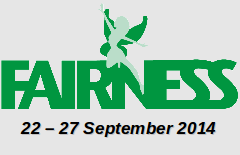Sprecher
Dr.
Jelena Vesic
(Jozef Stefan Institute, Ljubljana, Slovenia)
Beschreibung
Scintillation detectors will be an important part of detection systems in FAIR. In order to extract maximum information from the scintillation pulses, improved signal processing is required. Due to the stochastic nature of the pulse creation in a scintillation detector the output pulses are not all of the same shape but rather 'noised' with statistical fluctuations on the pulse tails, which may produce false triggers. The current state of the art in solving this kind of problems is either introducing a deadtime after each pulse which makes the detector inefficient at higher count rates or raising the trigger threshold above the fluctuactions level which, on the other side, lowers the dynamic range of the detector. In order to meet the ever growing demand for high precision/efficient experiments the solutions to these limitations are highly desirable. We propose a new method, the adaptive triggering for scintillation signals. In our method, the trigger is raised by a finite value and for a finite amount of time after each pulse. The method was first tested on simple simulated signals. Consequently, based on the simulation results, the optimal triggering parameters were obtained. Using these parameters, adaptive triggering was then tested with a NaI(Tl) detector in an intense Cs-137 gamma-ray field. The results show that this method significantly extends the useful energy range on the low energy side of the spectrum which is crucial if the desired information is present there.
Autor
Dr.
Jelena Vesic
(Jozef Stefan Institute, Ljubljana, Slovenia)
Co-Autoren
Dr.
Deniz Savran
(EMMI, GSI, Darmstadt, Germany; FIAS, Frankfurt am Main, Germany)
Herr
Klemen Strnisa
(Cosylab d.d., Ljubljana, Slovenia)
Dr.
Matjaz Vencelj
(Jozef Stefan Institute, Ljubljana, Slovenia)

